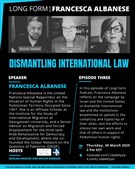[The following report was published by the International Crisis Group on 8 May 2014]
Executive Summary
With the Syrian regime and opposition locked in a see-saw battle, Kurdish forces have consolidated control over large portions of the country’s north. Their principal players, the Democratic Union Party (Partiya Yekîtiya Demokrat, PYD) and its armed wing, the People’s Protection Units (Yekîneyên Parastina Gel, YPG), now dominate three large, non-contiguous enclaves of Kurdish-majority territory along the Turkish border, over which the PYD proclaimed in November 2013 the transitional administration of Rojava (Western Kurdistan). Kurdish governance is unprecedented in Syria and for the PYD, an offshoot of the Turkish Kurdish insurgent movement PKK, from which it draws ideological, organisational and military support. But it is unclear whether this is a first step toward stability and the Kurdish aspiration for national recognition, or merely a respite while the civil war focuses elsewhere. The PYD alone will not determine the fate of Syria’s north, but it could greatly increase its chances by broadening its popular appeal and cooperating with other local forces.
For all its successes, the PYD’s rise is in no small part illusory, attributable less to its own prowess than to its links with other regional forces. Perhaps most important is its de facto alliance with the regime, which handed territories over to it while continuing to give material support to those territories. The party’s gains also flow from its backing from the Kurdistan Workers’ Party (Partiya Karkarane Kurdistan, PKK), outlawed as a terrorist organisation by the EU and U.S. and long active over the border in Turkey. The PYD is in practice an ideological, organisational and military part of this leftist group, of which the umbrella organisation is in theory the Union of Communities in Kurdistan (Koma Ciwakên Kürdistan, KCK). It benefits ideologically from the prestige of Abdullah Öcalan, the movement’s long-time leader; and with the PKK’s backing, the YPG has become the immediate region’s strongest military force, one whose success in fending off jihadi militants is perhaps the single most important reason for the Kurds’ waxing fortunes.
Ironically however, these same factors, crucial to the PYD’s success, are also its Achilles heel. First, its PKK heritage has encumbered the party with a rigid, authoritarian culture and vague program that are out of sync with popular expectations. Heavy-handed governance prompts at best grudging acquiescence from a constituency whose younger generation, particularly, appears to aspire to something different. Syrian Kurds have since the 1980s constituted up to one third of the members of the PKK, whose past bombings and murders of civilians have rendered the insurgency a pariah in Western capitals; affiliation with it blocks efforts to gain international legitimacy.
Secondly, suspected collaboration with the regime has taken a toll on its popularity. The Damascus authorities have maintained a light albeit firm presence in PYD-controlled areas, reportedly acting mostly beneath the surface. Even as they relinquished control over certain state assets (notably administrative and security buildings) to the PYD, they have maintained their hold on, and continue to disseminate, state resources without which the Rojava project would wither.
Thirdly, the PYD’s competition for dominance with would-be allies, most importantly the Kurdish Democratic Party of Masoud Barzani, the president of the Kurdistan Regional Government in Iraq, has created popular disenchantment and fatigue; this has left room for regional powers – notably Turkey and Iran – to manipulate the various sides in pursuit of their own interests. Barzani is on good terms with Ankara and Washington, so the PYD has few allies other than Damascus, Iran and, to an extent, the Nouri al-Maliki-led government in Baghdad.
These challenges raise questions about the depth and durability of the Rojava project. For PYD supporters, it is the kernel of future Kurdish self-rule. For detractors, it is an empty shell, a tool of the regime. It is hard to identify a way forward for Rojava. Its dependence on the regime alienates constituents, yet any step toward Kurdish partners and other actors risks jeopardising its dominance on the ground by undermining relations with Damascus.
Kurdish rights – not to mention longer-term local stability – are unlikely to be realised by the PYD forsaking its natural allies for a partnership of convenience with the same regime that long denied them. What all peoples of northern Syria need, Kurdish and non-Kurdish, is a common strategy for dealing with both Damascus and the minority communities in the region. This would require that the PYD:
- decrease its heavy reliance on its own military and the regime and instead broaden its support base among both Kurds and non-Kurdish populations, as well as the more pragmatic strands of the Syrian opposition;
- prepare, jointly with its support base, a strategy to replace the regime as a service provider and ensure the region’s access to resources; and
- diversify relations with foreign powers to diminish their ability to exploit communal tensions in their own interests.
Bringing northern Syria together would be no mean task, but the reward could be as great as the mission is difficult: emancipation from a regime that someday is likely to turn brutal attention back to the country’s north.
[To read the full report click here]
![[Logo of International Crisis Group. Image from crisisgroup.org]](https://kms.jadaliyya.com/Images/357x383xo/International_Crisis_Group-Logo.jpg)















